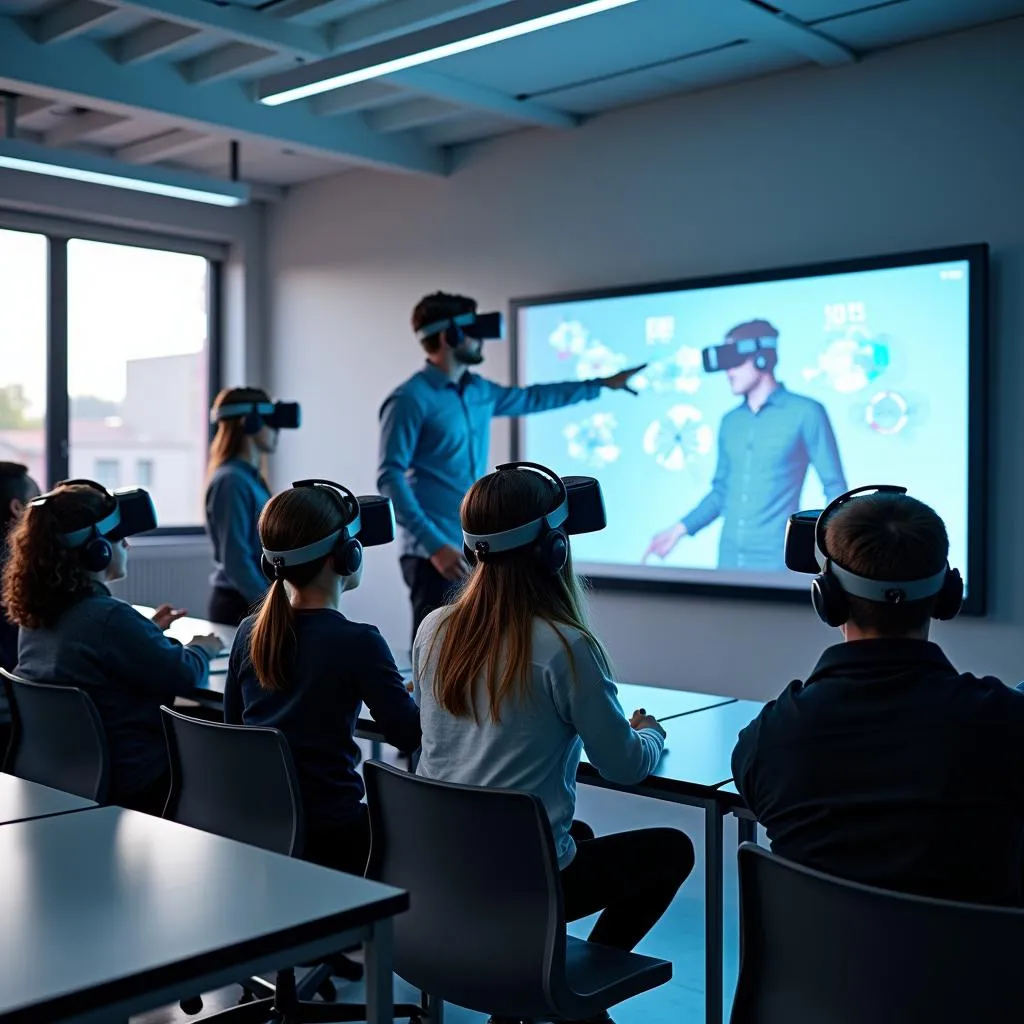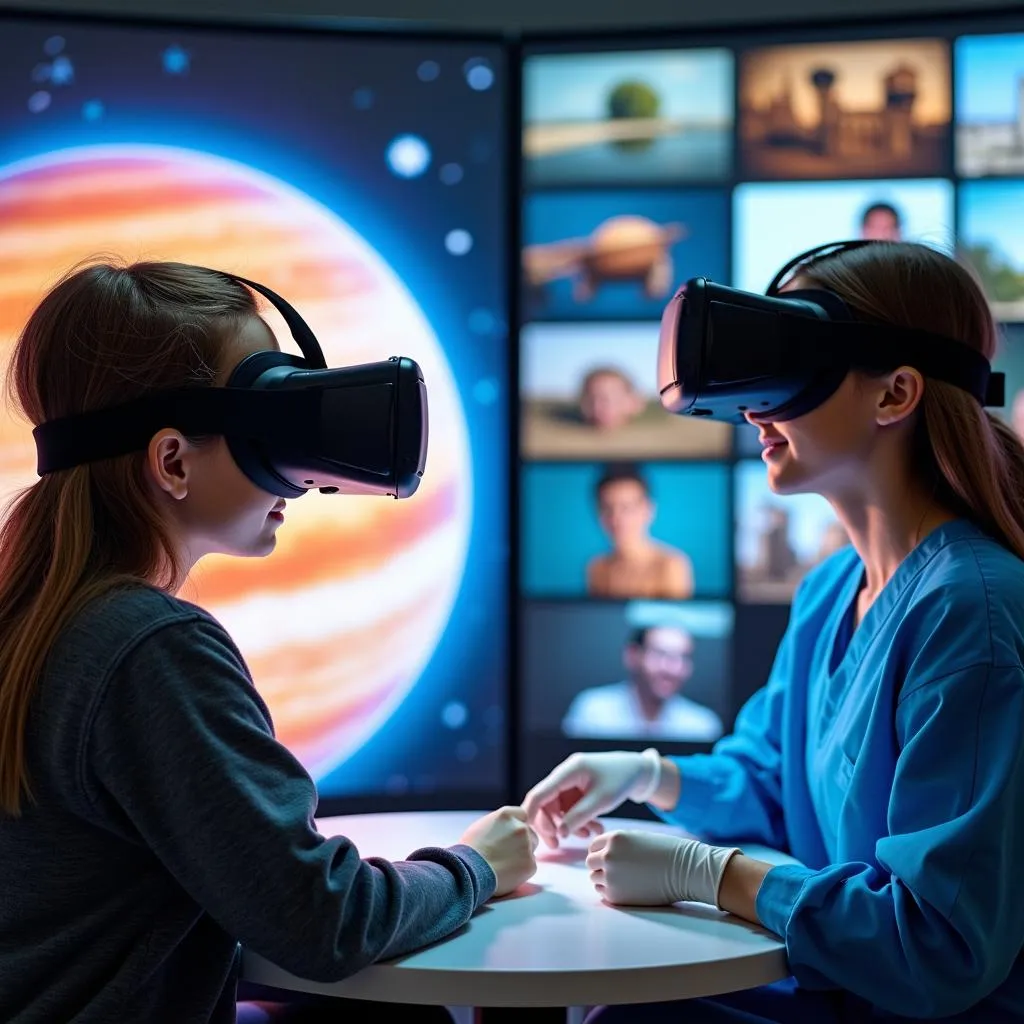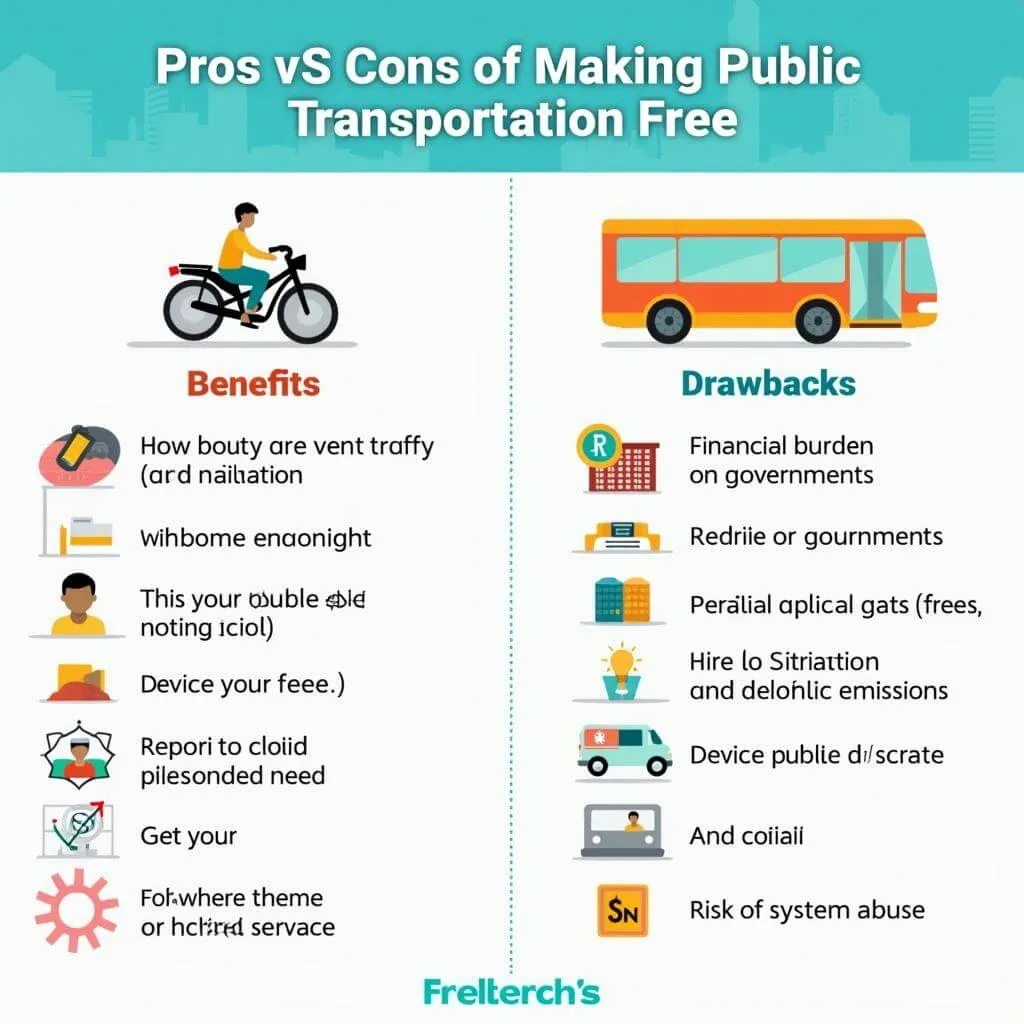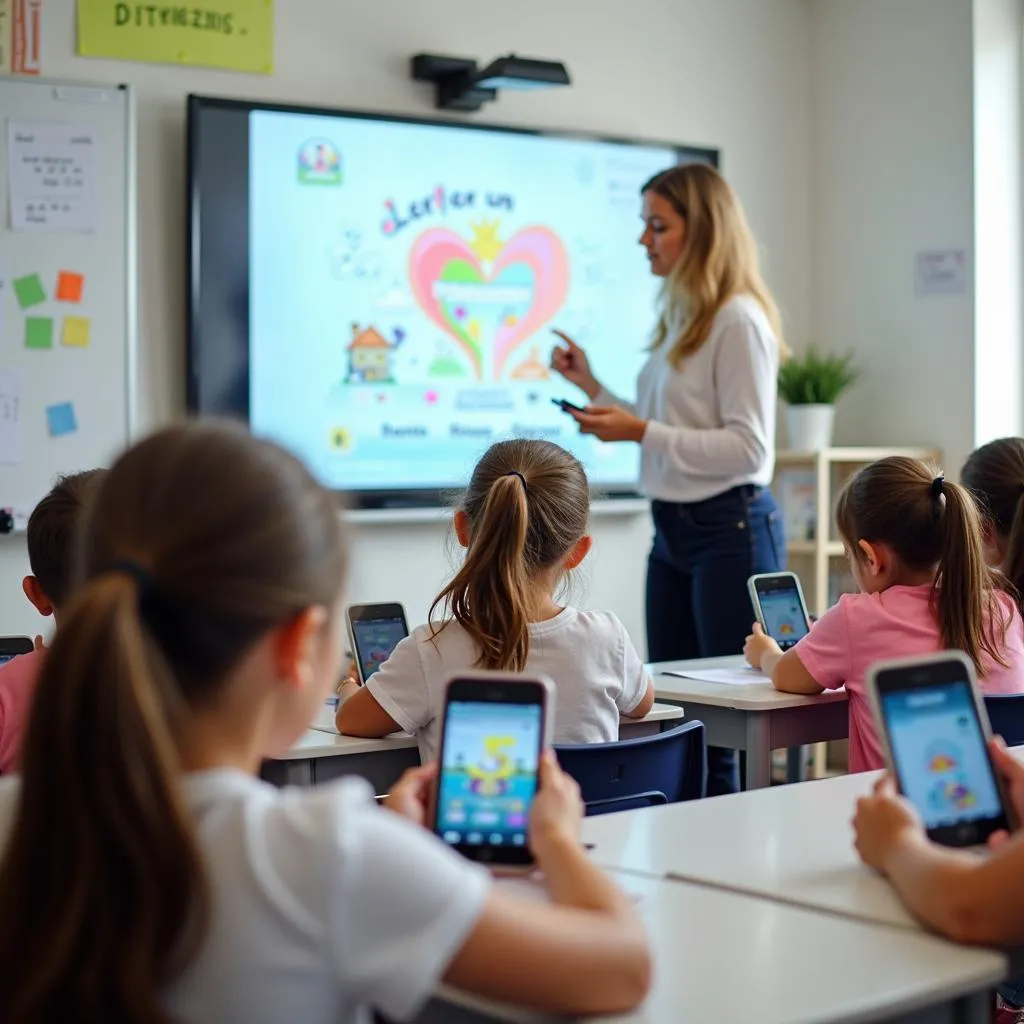Virtual reality (VR) in education is a topic that has gained significant attention in recent years, reflecting the rapid advancement of technology in the learning environment. This subject has appeared in IELTS Writing Task 2 questions several times, with variations focusing on the benefits and drawbacks of VR in education, its potential impact on traditional teaching methods, and its role in shaping the future of learning. Based on past trends and the increasing relevance of VR in educational settings, it’s highly likely that this topic will continue to be featured in future IELTS exams.
Table Of Contents
Let’s examine a sample question that has been commonly used in IELTS Writing Task 2:
Some people think that virtual reality will play a major role in education in the future. To what extent do you agree or disagree with this view?
Analyzing the Question
This question requires candidates to express their opinion on the potential impact of virtual reality on education. The key aspects to consider are:
- The phrase “will play a major role” suggests discussing the significance and extent of VR’s influence.
- “In the future” implies the need to consider long-term effects and possibilities.
- The question asks for your level of agreement, so a clear stance must be taken.
- Examples and reasons should be provided to support your position.
Sample Essay 1 (Band 8-9)
Virtual reality (VR) has emerged as a groundbreaking technology with the potential to revolutionize various sectors, including education. I strongly agree with the view that VR will play a significant role in shaping the future of education, as it offers immersive experiences and interactive learning opportunities that were previously unimaginable.
Firstly, VR has the capacity to transform abstract concepts into tangible, visual experiences. For instance, in subjects like biology or astronomy, students can virtually explore the human body or distant planets, providing a level of engagement and understanding that traditional textbooks or 2D images cannot match. This immersive learning environment can significantly enhance comprehension and retention of complex subjects, making education more effective and enjoyable.
Moreover, VR can break down geographical barriers in education. Students from different parts of the world can collaborate in virtual classrooms, participate in cultural exchanges, or even attend lectures by renowned experts without leaving their physical location. This global connectivity not only enriches the learning experience but also promotes cross-cultural understanding and prepares students for an increasingly interconnected world.
However, it is crucial to acknowledge that the integration of VR in education faces challenges. The cost of implementing VR technology on a large scale can be prohibitive for many educational institutions, particularly in developing countries. Additionally, there are concerns about the potential health impacts of prolonged VR use, such as eye strain or motion sickness, which need to be carefully addressed.
In conclusion, while there are hurdles to overcome, the potential benefits of VR in education are too significant to ignore. As technology continues to advance and become more accessible, I believe that VR will indeed play a major role in shaping the future of education, offering innovative ways to learn, collaborate, and explore that will complement and enhance traditional teaching methods.
(Word count: 290)
 Virtual reality enhancing classroom education
Virtual reality enhancing classroom education
Sample Essay 2 (Band 6-7)
In recent years, virtual reality (VR) has become more popular in many areas, including education. I agree to some extent that VR will have an important role in future education, but I also think there are some limitations to consider.
One of the main advantages of VR in education is that it can make learning more interesting and engaging. For example, history students could use VR to visit ancient civilizations or experience historical events firsthand. This kind of immersive experience can help students understand and remember information better than just reading about it in a book.
Another benefit is that VR can provide access to educational experiences that might not be possible in real life. Students could explore dangerous environments safely, like the inside of a volcano or the depths of the ocean. This can expand the range of subjects and topics that can be taught effectively.
However, there are also some drawbacks to using VR in education. One major concern is the cost of VR equipment and software, which might be too expensive for many schools and students. This could create inequality in education, where only wealthy schools can afford to use VR technology.
Additionally, spending too much time in virtual environments might negatively affect students’ social skills and physical health. It’s important for students to interact with real people and the physical world as part of their education and development.
In conclusion, while I believe VR will play a role in future education due to its ability to create engaging and unique learning experiences, it should be used as a supplement to traditional teaching methods rather than replacing them entirely. A balanced approach that combines VR with other educational tools and real-world experiences is likely to be the most effective way forward.
(Word count: 278)
Sample Essay 3 (Band 5-6)
Virtual reality is a new technology that is becoming more popular. Some people think it will be very important for education in the future. I partly agree with this idea.
There are some good things about using VR in education. First, it can make learning more fun. Students can see and do things in VR that they can’t do in a normal classroom. For example, they could travel to different countries or see inside the human body. This might help them remember things better.
Also, VR can be useful for learning practical skills. Students can practice dangerous jobs like firefighting or surgery without any real danger. This is a safe way to learn important skills.
However, there are also some problems with VR in education. One big problem is that VR equipment is very expensive. Many schools might not be able to afford it. This means not all students will have the chance to use VR for learning.
Another problem is that too much VR might not be good for students’ health. It could hurt their eyes or make them feel sick. Also, if students spend too much time in VR, they might not learn how to talk to real people properly.
In conclusion, I think VR will be used in education in the future, but it won’t replace traditional teaching completely. It will probably be used as an extra tool to help students learn better. Schools will need to find a good balance between using VR and other ways of teaching.
(Word count: 243)
Explanation of Band Scores
Band 8-9 Essay:
This essay demonstrates excellent writing skills with:
- Clear organization and coherent ideas
- Wide range of vocabulary (e.g., “groundbreaking,” “revolutionize,” “immersive experiences”)
- Complex sentence structures
- Strong arguments with relevant examples
- Balanced view considering both advantages and challenges
- Appropriate use of cohesive devices
Band 6-7 Essay:
This essay shows good writing ability with:
- Clear overall structure
- Adequate vocabulary with some less precise word choices
- Mix of simple and complex sentences
- Relevant ideas with some development
- Attempts to present a balanced view
- Some use of cohesive devices, though not always accurate
Band 5-6 Essay:
This essay demonstrates moderate writing skills with:
- Basic organization of ideas
- Limited vocabulary range with some repetition
- Mostly simple sentences with occasional errors
- Main ideas presented but with limited development
- Attempt to address both sides of the argument
- Basic use of cohesive devices
How online learning is transforming education is closely related to the integration of virtual reality in educational settings. As VR technology becomes more accessible, it is likely to play an increasingly significant role in online learning platforms, offering immersive experiences that can enhance student engagement and understanding.
Key Vocabulary to Remember
- Virtual reality (noun) – /ˈvɜːrtʃuəl riˈæləti/ – a computer-generated simulation of a three-dimensional environment
- Immersive (adjective) – /ɪˈmɜːrsɪv/ – providing, involving, or characterized by deep absorption or immersion in something
- Abstract (adjective) – /ˈæbstrækt/ – existing in thought or as an idea but not having a physical or concrete existence
- Retention (noun) – /rɪˈtenʃn/ – the continued possession, use, or control of something; the ability to remember things
- Prohibitive (adjective) – /prəˈhɪbətɪv/ – (of a price or charge) excessively high; so high as to prevent purchase or use
- Complement (verb) – /ˈkɒmplɪment/ – add to (something) in a way that enhances or improves it
- Inequality (noun) – /ˌɪnɪˈkwɒləti/ – difference in size, degree, circumstances, etc.; lack of equality
- Supplement (noun/verb) – /ˈsʌplɪmənt/ – something added to complete or enhance something else; add an extra element or amount to
 Educational applications of virtual reality
Educational applications of virtual reality
In conclusion, the topic of virtual reality in education is likely to remain relevant for IELTS Writing Task 2. Candidates should be prepared to discuss both the potential benefits and challenges of integrating VR into educational systems. Some potential future questions might include:
- Do you think virtual reality should replace traditional classroom learning?
- How might virtual reality affect the role of teachers in the future?
- Should governments invest in virtual reality technology for schools? Why or why not?
To practice effectively, try writing your own essay on the sample question provided in this article. Feel free to share your essay in the comments section for feedback and discussion. This active practice can significantly improve your writing skills and prepare you for the IELTS Writing Task 2.
The influence of technology on educational outcomes is a broader topic that encompasses virtual reality and other digital tools. Understanding this wider context can help you develop more comprehensive arguments in your IELTS essays.
Lastly, it’s important to consider how to promote digital transformation in education, as the integration of virtual reality is just one aspect of the ongoing technological revolution in learning environments. Being able to discuss these related topics will give you a more well-rounded perspective on the future of education.



